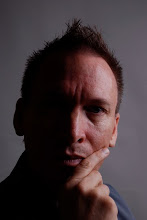Van Der Graaf Generator
King of doom
Rock history is littered with merchants of misery and harbingers of doom: Joy Division’s Ian Curtis took the cake by topping himself, but there’s a long roll call. Nick Drake, Morrissey, ‘Laughing’ Leonard Cohen, on it goes.
The King of doom, however, is singer/songwriter Peter Hammill, whose angst-ridden existential anthems and unique, edgy, semi-operatic vocals have cast a large shadow over fellow artists such as David Bowie, while barely touching the greater public consciousness.
While Hammill has 50-odd solo albums spanning 1968 to the present, it’s the stop-start ten years he spent at the helm Van Der Graaf Generator (1968-1978) that made the most waves. Loosely part of the ‘progressive rock’ underground of the late ‘60s with its tendency towards 20-minute song-suites and fiddly time signatures, VDGG broke the mould. Hammill’s band-mates came up with a unique and dynamic sound to vividly portray their lyricist’s dark preoccupations, featuring the frightening wail of an amplified double sax and wildly modified electric organ. Years later, Hammill and mates would escape ‘dinosaur’ chastisement from the emerging punk firmament. Hey, even Johnny Rotten was a fan.
Now, 25 years after they split, VDGG are back with a stubbornly raucous reunion album, Present, and remastered editions of their oeuvre, all released on EMI’s specially revitalised Charisma imprint.
A fan since the mid-‘70s, there’s one question on my lips: Peter Hammill, are you a miserable bastard?
“I try to keep my spirits up, but on the other hand, writing songs is the serious bit of my life and what I do, so you have a natural tendency, if you’re doing that, to write songs about darker stuff, and just get on and live through the light stuff and enjoy it. I’ve always taken the view that writing and performing is a cathartic activity. So it’s partly through working through this stuff that I’m liberated in a way to be lighter or good humoured, so far as I am (chuckles) in my normal life.”
Right then.
Hammill’s solo work is filled with his literary preoccupations (adaptations of Edgar Allan Poe, etc) but despite his lyrical eloquence, VDGG’s biggest audience awaits in Italy, a vindication of the group’s musical strengths.
“In Britain particularly, there can be an element of ‘my God, there’s a bit too much going on with the words here’. People are rebuffed by that. Italy, of all the European countries is the one where people speak English the least. It meant that the first thing they ‘got’ was the music. And of course the sound of the words… obviously a part of writing a decent song is not only to have meaning of the words, but also that they SOUND correct. So effectively the immediate response was emotional rather than intellectual.”
Describing VDGG’s sound as “ugly but natural”, and “force rather than too much filigree or delicacy”, Hammill insists that their reunion has not a whiff of nostalgia. Rather, having suffered a recent heart attack, the reformation was more the realisation “that time is marching on and that if we were ever to do it we had better do it sooner rather than later.”
For one of the least compromised artists to have successfully forged a career out of a heinous industry, however, there’s still no sign of bending for Peter Hammill.
“If they don’t want to look, then that’s fair enough. Everybody’s made up of their own composition; the periodic table of intellectual interests, spiritual interests and what have you. Happily (laughs) that’s what makes us what we are.”
* VDGG’s new CD, Present, is out now. Reissues out now: The Least We Can Do Is Wave, H To He Is The Only One, Pawn Hearts. Out early July: Godbluff, Still Life. All Charisma/EMI.


0 Comments:
Post a Comment
<< Home